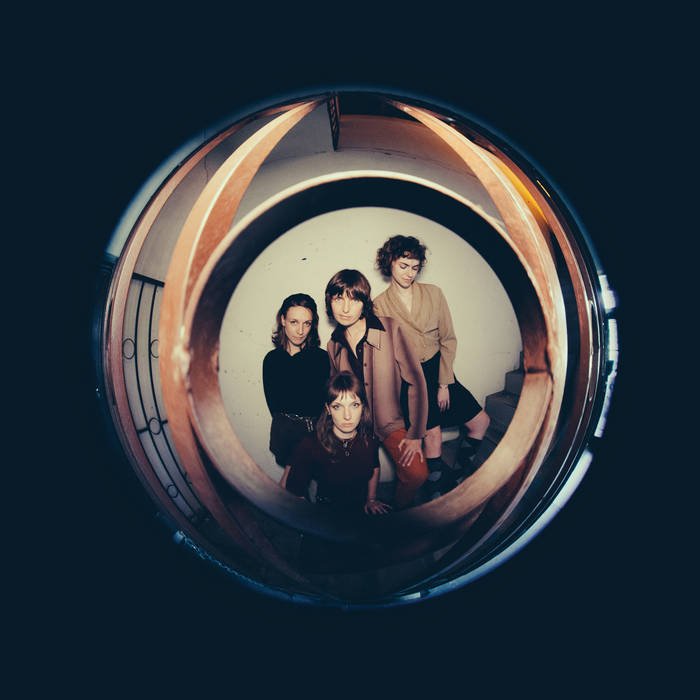by Chris Polley (@qhrizpolley)
Pop music that’s unafraid to be messy, frayed around the edges, and even a tinge dissonant scratches a very particular kind of itch: it’s fun but noisy, aesthetically pleasing but challenging, and bouncy but with the soul of a depressed person. On their sophomore long-player Behold, Melbourne’s shaggy retro outfit Parsnip fits this bill quite satisfyingly, never relying on the gritty texture of a lo-fi production or the limp posturing of a scuzzy garage revival band. Arriving five years after their debut LP When the Tree Bears Fruit, this collection of songs is a bold and confident take on the kind of daring, inventive, and still bubbly and breezy chamber folk introduced back in the pre-COVID beforetimes.
The band’s sound isn’t just a smattering of paradoxes, either. It’s developed here in a way that invites comparison to some of the most iconic and signature voices of demented pop, landing somewhere between the 1960s proto-punk group The Shaggs (whose music is famously discordant and stilted with fans split on whether this was intentional or not) and 1980s DIY jangle-pop stalwarts The Cleaners from Venus (who returned in 2010 and have continued to release music prolifically ever since in accordance with the resurgence of their genre, sensibilities, and ethics). On Behold, Parsnip manages to effortlessly retain the irreverent joy and lack of cynicism captured by the counterculture of the Swinging Sixties as well as the brainy age of excess that came twenty years or so later. Of course, both of these pop styles have since been recycled ad nauseam, especially in the fickle but often redundant world of indie rock, so when a band taps into something both startlingly new and comfortingly familiar like this, it’s quite special.
To wit, lead single “The Light” is a buzzy delight of stacked harmonies floating atop a chugging main riff and is a welcome, catchy number after a kitchen-sink opener with semi-abrasive no wave trappings. Also, a chiming synth coupled with a downbeat melody on “Placeholder” (which, like its title suggests, contains the clever chorus line “Lorem ipsum dolor sit amet / you move on so easy that I don’t forget”) recalls some of the more obvious throwback pop artists in indie such as Of Montreal or Belle & Sebastian and thus, providing a singalong opportunity for listeners thirsty for hooks. There’s even a song on the album’s back-half (“The Babble”) with a whistling refrain, dense autoharp strumming, and an explosion sound effect at the end for those of us yearning for unabashed novelty in the midst of our art-damaged avant-garde pop music.
Smack in the middle of all the layered vocals and plucky bass lines, though, is the real star of the record: the organ. Or, rather, the organ voice(s) of Rebecca Liston’s keyboard(s). Deep, ominous chords plunge underneath the din of washed out guitars and manic percussion on nearly every track, never more prominent than in the album’s two stunning (though brief) instrumentals, “Pockets” and “Swan Song,” which, it can be argued, also serve as proof of Parsnip’s incredible and very intentional chops as players of all their instruments. Sometimes stripping away all the pomp and humor temporarily is exactly what an album needs to remind the listener of its greatest strength: the composition and the palette, plus how the two intertwine.
One other good sign of a vital pop album? Its replayability. Behold has got this locked up like very few sardonic, nostalgic acts nowadays do. Pressing play on it won’t bring you back to the 60s or 80s, but it will do something even more impressive: worm its singular voice into your head in a way that the only way you’ll feel relief is by scratching that itch over and over again.

